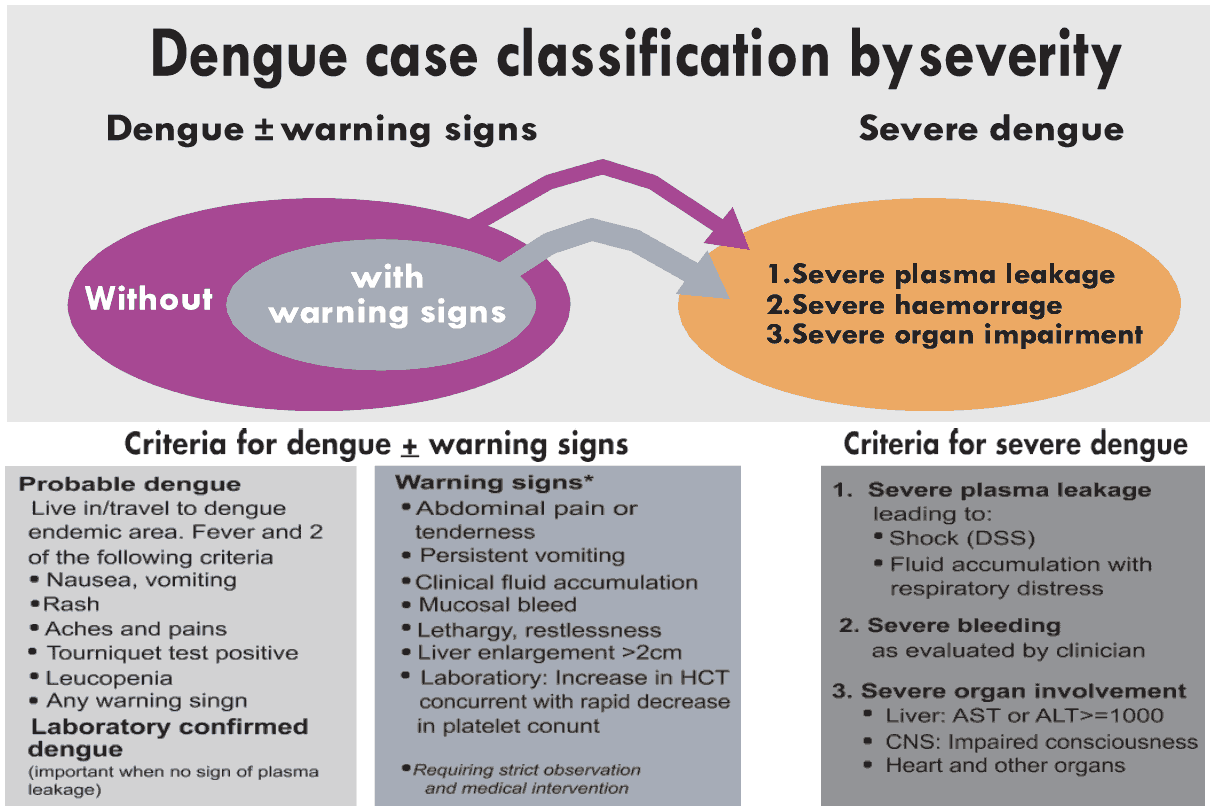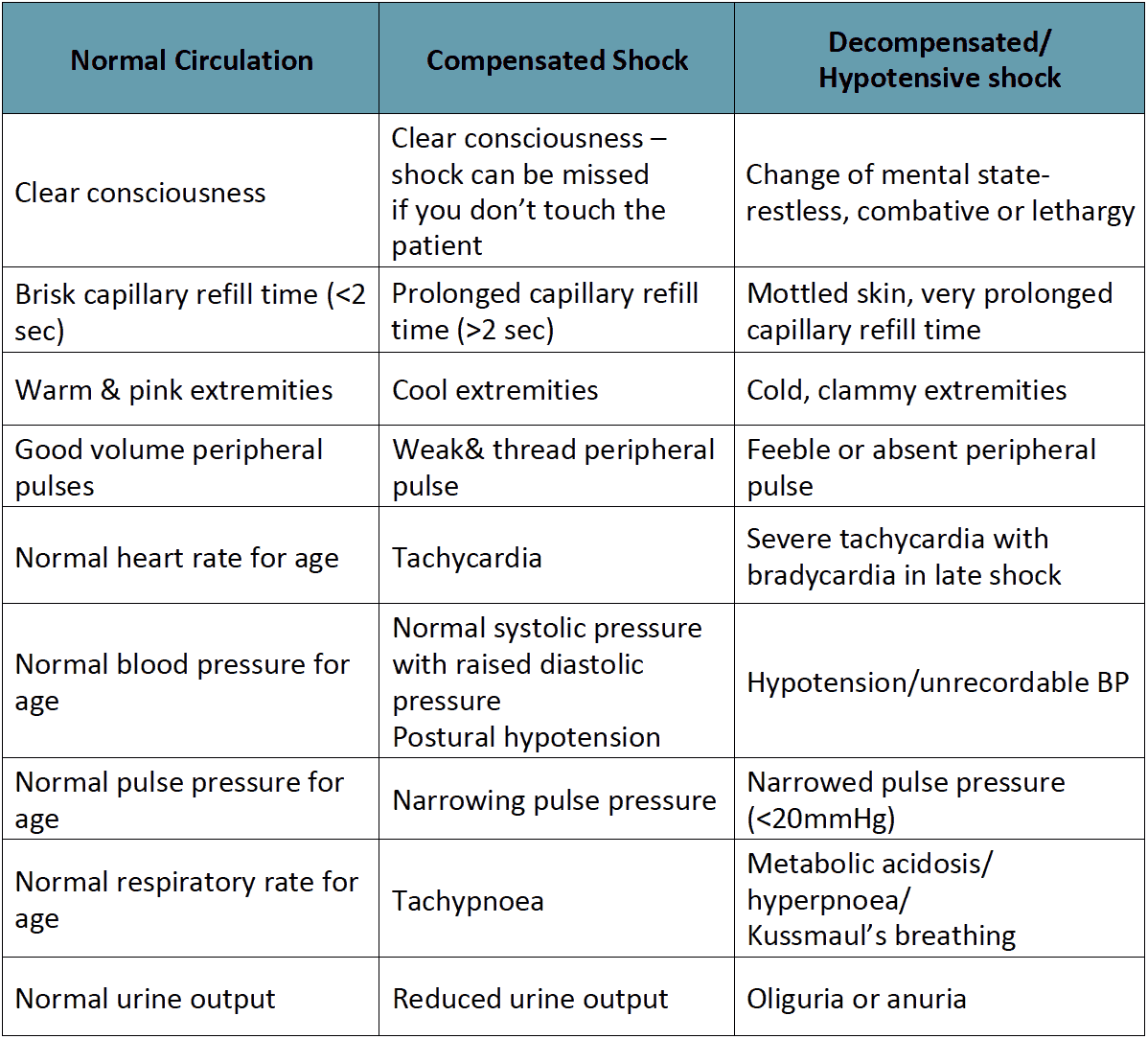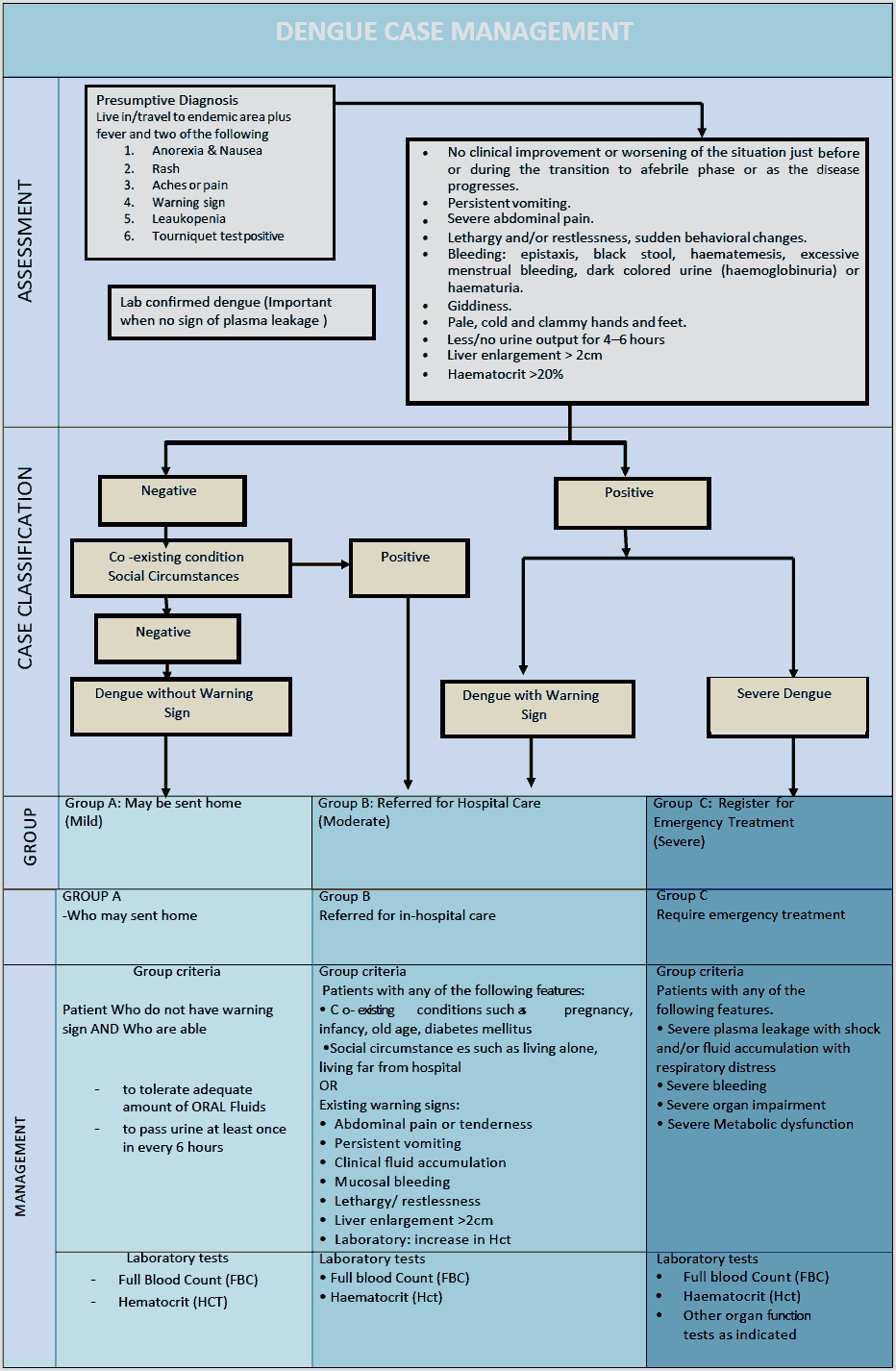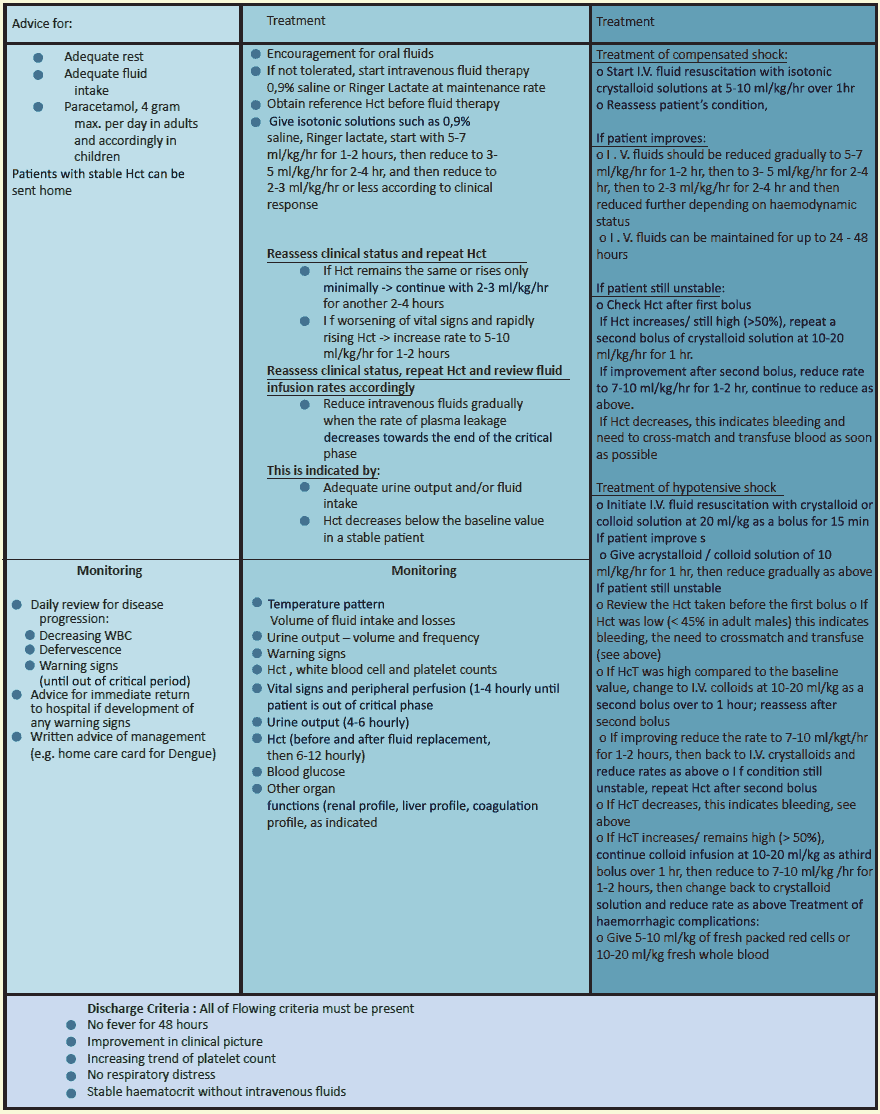4.1 Dengue Case Classification by Severity
exp date isn't null, but text field is
Changes in the epidemiology of dengue, especially with an increasing number of cases in adults (with and without co-morbidities) and the expansion of dengue into other regions of the world, has led to problems with the use of the existing WHO classification. This clinical guide uses three categories for case management (A, B, C) based on the model of case classification that follows (Figure 10) after a patient has fulfilled the criteria for probable dengue.

Figure 10 - Dengue case classifications
ALT = alanine aminotransferase; AST = aspartate aminotransferase; CNS = central nervous system; DSS = dengue shock syndrome; HCT = haematocrit
Patients Group A: These are patients who are dengue patients without warning sign and they may be sent home. These patients are able to tolerate adequate volumes of oral fluids, pass urine at least once every six hours.
Patients Group B: These include patients with warning signs. These are patients who should be admitted for in-hospital management for close observation as they approach the critical phase. Rapid fluid replacement in patients with warning signs is the key to prevent progression to the shock state.
Warning Sign
• No clinical improvement or worsening of the situation just before or during the transition to afebrile phase or as the disease progresses.
• Persistent vomiting.
• Severe abdominal pain.
• Lethargy and/or restlessness, sudden behavioural changes.
• Bleeding: Epistaxis, black stool, haematemesis, excessive menstrual bleeding, dark colored urine (haemoglobinuria) or haematuria.
• Giddiness.
• Pale, cold and clammy hands and feet.
• Less/no urine output for 4 – 6 hours.
• Liver enlargement > 2cm
• Haematocrit >20%
Those with co - existing conditions or risk factors may need careful monitoring and hospitalization even without warning signs:
- pregnancy
- infancy
- old age
- obesity
- diabetes mellitus
- hypertension
- heart failure
- renal failure
- chronic hemolytic diseases such as (sickle - cell disease and autoimmune diseases) those with certain social circumstances (such as living alone, or living far from a health facility without reliable means of transport).
Patients Group C: These are patients with severe dengue who require emergency treatment and urgent referral because they are in the critical phase of the disease and have:
- Severe plasma leakage leading to dengue shock and/or fluid accumulation with respiratory distress.
- Severe organ impairment (hepatic damage, renal impairment).
- Myocarditis, cardiomyopathy, encephalopathy or encephalitis.
- Severe metabolic abnormalities (metabolic acidosis, severe hypocalcaemia etc).

Table 6 - Clinical symptoms and signs in compensated and decompensated shock


Table 7 - Dengue Case Management Algorithm
